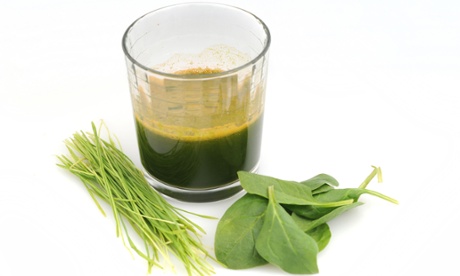
At this late stage of the fad, many of us know that “detoxing” is not real.
“The healthy body has kidneys, a liver, skin, even lungs that are detoxifying as we speak,” says Dr Enzard Ernst. “There is no known way – certainly not through detox treatments – to make something that works perfectly well in a healthy body work better.”
No juice, no herbs, no supplements, no weird concoction made of lemon juice and maple syrup. It doesn’t work. But in some ways this is the least interesting part of the detox fad. There’s always some fake health and wellness crap wafting around, and the specific sort of scam that has widespread appeal changes depending on the collective way we imagine our bodies and minds to work.
Scientists in the media frequently express shock and frustration that we continue to purchase detox products with the approximate medical efficacy of a poke in the eye, but it’s not surprising when you consider how logically consistent the detox narrative is with our moral prescriptions for health. That it’s snake oil is irrelevant: detox parts people from their money because it confirms their beliefs, makes them feel virtuous. It doesn’t do anything to us physically, but the ideas sold to us along with the green smoothies are potent.
With detox, it’s about purity, self-control, and penance. The idea of removing toxins from your body implies that your unhealthy lifestyle renders you somehow tainted from the inside out, dirty. As Dr. Ernst says, this is complete nonsense, but it is a very powerful image. Broadly, the emphasis on purging oneself as a means of attaining some more desirable state of being accords with our basic beliefs about health and virtue.
There are many possible ways of perceiving these concepts, and the ways they might inter-relate. But we tend to think of them as more individual than collective, and more within our control than not – force yourself to exercise, force yourself to eat vegetables, and you are rewarded with a feeling of achievement. The world around us is hostile, filled with temptation and distraction, and it’s up to each us to display the strength of character to choose healthy behaviours. People perceived as incapable or unwilling to fight this unpleasant battle – smokers, addicts, the visibly fat – are punished and shamed for being weak.
In an article for medical journal The Lancet, Richard P. Sloan explores the way these methods of practising virtue have historically been thought to produce good health. Individual control is perhaps even less medically relevant than juices and pills, but personality tendencies and emotional states have long been thought to influence health. Diseases like HIV/Aids, cancer, hypertension, asthma, and ulcers have all been considered the consequence of improper emotional regulation or a lack of moral character:
Sickness transforms them into moral outsiders, different from the rest of us, deserving of their fate, and they join other outsiders whose misfortune—lacking a job, being hungry or homeless, or being an immigrant—elicit the attempts we see so frequently today to justify those conditions by attributions of character flaws.
These narratives of desert and wellness have been around for a long time. A couple of people in lab coats asserting that detox doesn’t work will not be enough to change how easy it is for charlatans to manipulate large percentages of the population using language that sounds “health-y”. Science will have to present a competing narrative that contains the relevant truths before we’ll find it as convincing as the image of a slim, tanned body holding a basket of vegetables on the box of some overpriced herb bullshit.
This does look like the only way to halt the popularity of the garbage that is detox. Senior lecturer at Deakin University school of medicine Michael Vagg, writing on the therapeutic goods administration’s complementary medicine regulations, is not understating the case when he describes the current regime as “completely cactus”.
[Vitamin] company Swisse has evaded an attempt by TGA to ban its appetite suppressant product by registering a new product with the exact same ingredient, an extract of Indian cactus. Oh, and Nicole Kidman has been named as the company’s US ambassador.
The ABC’s consumer affairs show The Checkout is one of the only quality efforts in Australia to educate the public on dodgy complementary medicines. The show uses humour to keep people watching, appeals to people’s sense of fairness and outrage in a way that the dry presentation of a Science Fact is not.
Acknowledging and deploying the power of rhetoric like this needn’t mean abandoning facts. The detox industry is successful because of its extraordinary attention to image and storytelling, and any successful attempt to blow a hole in its profits will have to proceed by these same methods.

